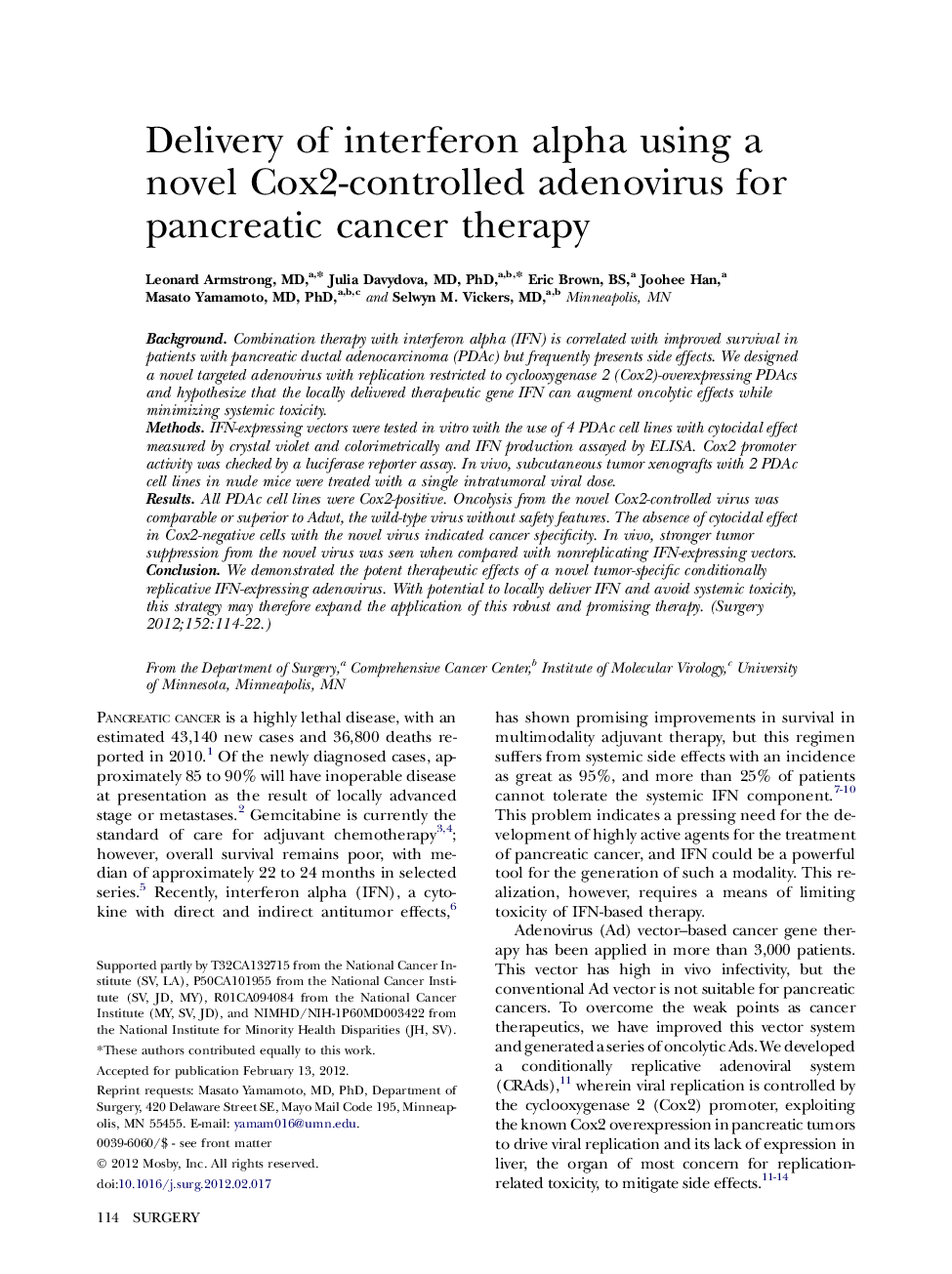| Article ID | Journal | Published Year | Pages | File Type |
|---|---|---|---|---|
| 4307983 | Surgery | 2012 | 9 Pages |
BackgroundCombination therapy with interferon alpha (IFN) is correlated with improved survival in patients with pancreatic ductal adenocarcinoma (PDAc) but frequently presents side effects. We designed a novel targeted adenovirus with replication restricted to cyclooxygenase 2 (Cox2)-overexpressing PDAcs and hypothesize that the locally delivered therapeutic gene IFN can augment oncolytic effects while minimizing systemic toxicity.MethodsIFN-expressing vectors were tested in vitro with the use of 4 PDAc cell lines with cytocidal effect measured by crystal violet and colorimetrically and IFN production assayed by ELISA. Cox2 promoter activity was checked by a luciferase reporter assay. In vivo, subcutaneous tumor xenografts with 2 PDAc cell lines in nude mice were treated with a single intratumoral viral dose.ResultsAll PDAc cell lines were Cox2-positive. Oncolysis from the novel Cox2-controlled virus was comparable or superior to Adwt, the wild-type virus without safety features. The absence of cytocidal effect in Cox2-negative cells with the novel virus indicated cancer specificity. In vivo, stronger tumor suppression from the novel virus was seen when compared with nonreplicating IFN-expressing vectors.ConclusionWe demonstrated the potent therapeutic effects of a novel tumor-specific conditionally replicative IFN-expressing adenovirus. With potential to locally deliver IFN and avoid systemic toxicity, this strategy may therefore expand the application of this robust and promising therapy.
